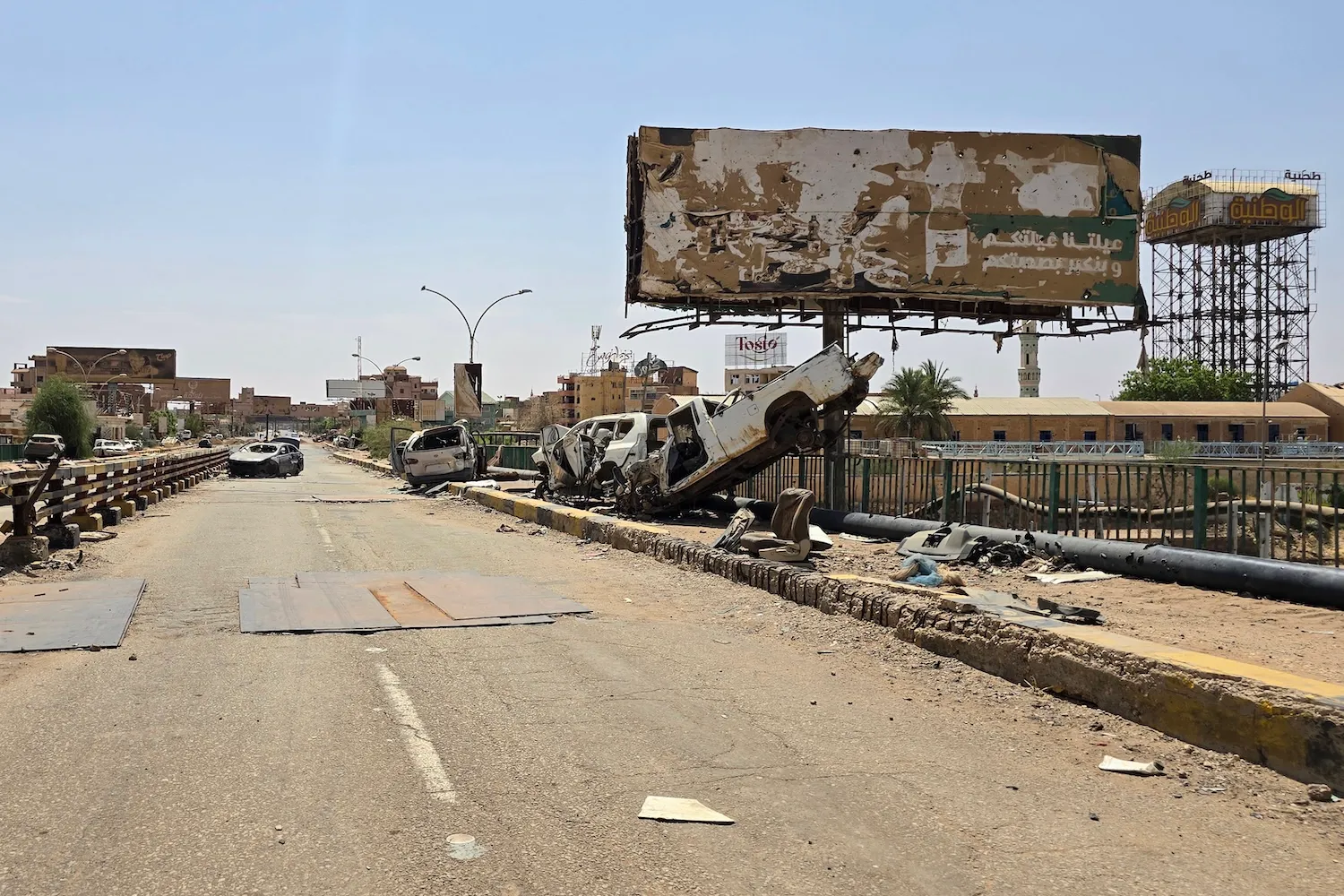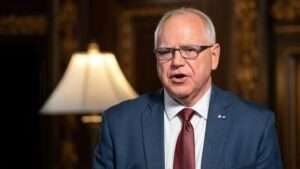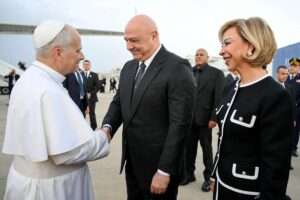By Ampamya Ronah
Sudan’s civil war, now in its third year, has entrenched itself as a relentless stalemate, devastating Africa’s third-largest nation and plunging millions into a dire humanitarian crisis. The Sudanese Armed Forces (SAF) and Rapid Support Forces (RSF) are locked in a grueling struggle for marginal gains, with no clear path to victory. As shattered vehicles clutter the Shambat Bridge outside Khartoum and famine threatens millions, Washington has a critical opportunity to lead a diplomatic surge to prevent this catastrophe from deepening.
Since April 2023, Sudan’s war has displaced over 10 million people and killed tens of thousands. The SAF, led by General Abdel Fattah al-Burhan, and the RSF, under Mohamed Hamdan “Hemedti” Dagalo, are mired in a conflict that thrives on attrition rather than resolution. Infrastructure lies in ruins, the economy has collapsed, and 25 million people—half of Sudan’s population—urgently need aid. In RSF-controlled Darfur and the battered capital of Khartoum, famine looms large.
Both sides operate with calculated restraint, avoiding attacks on each other’s leadership or lucrative gold-mining operations that fund their war efforts. As former U.S. official Cameron Hudson observes, external backers—Egypt for the SAF and the United Arab Emirates for the RSF—allegedly facilitate the laundering of these profits, perpetuating the conflict. This cynical arrangement prioritizes financial gain over peace, leaving civilians to endure the fallout.
The human toll is staggering. The United Nations reports that 14.7 million Sudanese face acute food insecurity, with 8.5 million on the brink of famine. Insecurity and blockades have crippled aid delivery, leaving hospitals bombed, schools closed, and communities uprooted. Women and children bear the brunt, with widespread sexual violence and child recruitment into militias adding to the horror.
International efforts have fallen short. Humanitarian funding covers less than 20% of Sudan’s needs, and regional powers like Egypt, the UAE, Russia, and Turkey fuel the conflict with arms and funds, undermining peace talks. Neighboring countries, such as Chad and South Sudan, are strained by millions of refugees, risking broader regional instability.
The United States, with its diplomatic leverage and history of engagement in Sudan, is uniquely positioned to act. Washington can pursue three critical steps to curb the crisis:
1.Convene a High-Level Peace Summit. Washington should lead a summit involving the SAF, RSF, regional powers, the African Union, and the United Nations. Building on past efforts like the Jeddah talks, the U.S. can push for a ceasefire and humanitarian access by tying cooperation to diplomatic incentives and consequences for obstruction.
2.Disrupt War Profiteering.
The U.S. Treasury should impose sanctions on entities laundering Sudan’s gold, particularly those linked to Egypt and the UAE. By targeting the financial lifelines sustaining the war, Washington can pressure both sides toward negotiation.
3.Lead Humanitarian Relief. Washington must spearhead a global donor effort to meet the UN’s $2.7 billion aid appeal while advocating for safe corridors to deliver food and medical supplies. Partnerships with NGOs and regional allies can ensure aid reaches Sudan’s most vulnerable.
Inaction risks catastrophic consequences. A prolonged stalemate could destabilize the Horn of Africa, fueling extremism and cross-border conflicts. A collapsed Sudanese state might invite groups like the Islamic State to exploit the vacuum, while the refugee crisis threatens to overwhelm neighboring nations. Washington cannot afford to stand by.
Sudan’s civil war is a global tragedy demanding urgent action. Through diplomacy, sanctions, and humanitarian leadership, Washington can break the cycle of violence and alleviate suffering. The time to act is now—before Sudan’s catastrophe becomes an indelible scar on the region and the world.
By Ampamya Ronah
Sudan’s civil war, now in its third year, has entrenched itself as a relentless stalemate, devastating Africa’s third-largest nation and plunging millions into a dire humanitarian crisis. The Sudanese Armed Forces (SAF) and Rapid Support Forces (RSF) are locked in a grueling struggle for marginal gains, with no clear path to victory. As shattered vehicles clutter the Shambat Bridge outside Khartoum and famine threatens millions, Washington has a critical opportunity to lead a diplomatic surge to prevent this catastrophe from deepening.
Since April 2023, Sudan’s war has displaced over 10 million people and killed tens of thousands. The SAF, led by General Abdel Fattah al-Burhan, and the RSF, under Mohamed Hamdan “Hemedti” Dagalo, are mired in a conflict that thrives on attrition rather than resolution. Infrastructure lies in ruins, the economy has collapsed, and 25 million people—half of Sudan’s population—urgently need aid. In RSF-controlled Darfur and the battered capital of Khartoum, famine looms large.
Both sides operate with calculated restraint, avoiding attacks on each other’s leadership or lucrative gold-mining operations that fund their war efforts. As former U.S. official Cameron Hudson observes, external backers—Egypt for the SAF and the United Arab Emirates for the RSF—allegedly facilitate the laundering of these profits, perpetuating the conflict. This cynical arrangement prioritizes financial gain over peace, leaving civilians to endure the fallout.
The human toll is staggering. The United Nations reports that 14.7 million Sudanese face acute food insecurity, with 8.5 million on the brink of famine. Insecurity and blockades have crippled aid delivery, leaving hospitals bombed, schools closed, and communities uprooted. Women and children bear the brunt, with widespread sexual violence and child recruitment into militias adding to the horror.
International efforts have fallen short. Humanitarian funding covers less than 20% of Sudan’s needs, and regional powers like Egypt, the UAE, Russia, and Turkey fuel the conflict with arms and funds, undermining peace talks. Neighboring countries, such as Chad and South Sudan, are strained by millions of refugees, risking broader regional instability.
The United States, with its diplomatic leverage and history of engagement in Sudan, is uniquely positioned to act. Washington can pursue three critical steps to curb the crisis:
1.Convene a High-Level Peace Summit. Washington should lead a summit involving the SAF, RSF, regional powers, the African Union, and the United Nations. Building on past efforts like the Jeddah talks, the U.S. can push for a ceasefire and humanitarian access by tying cooperation to diplomatic incentives and consequences for obstruction.
2.Disrupt War Profiteering.
The U.S. Treasury should impose sanctions on entities laundering Sudan’s gold, particularly those linked to Egypt and the UAE. By targeting the financial lifelines sustaining the war, Washington can pressure both sides toward negotiation.
3.Lead Humanitarian Relief. Washington must spearhead a global donor effort to meet the UN’s $2.7 billion aid appeal while advocating for safe corridors to deliver food and medical supplies. Partnerships with NGOs and regional allies can ensure aid reaches Sudan’s most vulnerable.
Inaction risks catastrophic consequences. A prolonged stalemate could destabilize the Horn of Africa, fueling extremism and cross-border conflicts. A collapsed Sudanese state might invite groups like the Islamic State to exploit the vacuum, while the refugee crisis threatens to overwhelm neighboring nations. Washington cannot afford to stand by.
Sudan’s civil war is a global tragedy demanding urgent action. Through diplomacy, sanctions, and humanitarian leadership, Washington can break the cycle of violence and alleviate suffering. The time to act is now—before Sudan’s catastrophe becomes an indelible scar on the region and the world.















